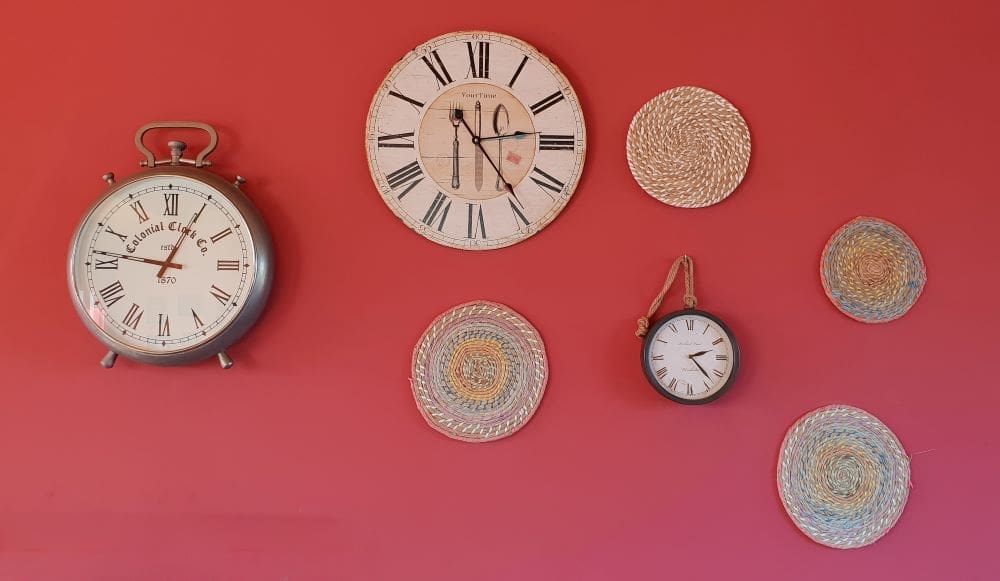Originally published in “[think] Like A Mind Reader” available on Amazon.com
If you want your time back, you have to face procrastination and indecision. Both are quietly stealing time right from under your nose. You’re missing out on opportunities, experiencing more problems, and getting left behind because you take too long making up your mind. Indecision will paralyze you. I know from experience. My ex-wife told me once, “Indecision is a decision.”
And she’s right.
Indecision is refusing to take responsibility for your life. It’s telling yourself that everybody else is better qualified to make your choices than you are. That is not how you go about building the best life. That was a hard lesson for me to learn, but one I’m glad I figured out. I’d rather not have to spend any more time than I have to on that one!
Indecision usually happens when you don’t see a good way forward. You don’t like any of the options you can see, so you think waiting it out by not choosing any of them is your best bet. But, as she said, “Indecision is a decision.” It’s a decision to let precious time slip through your fingers. I’m here to tell you that making mistakes is a thousand percent better than not making a decision.
The faster you make the mistake, the more time you’ll have to fix it. But you won’t know what you need to work on until you take action. I don’t care which direction you choose so long as you get started. Only then can you build momentum, and figure out which way you should be moving.
I used to spend way too much time on things that didn’t actually make a difference in my life. That’s why one of my New Year’s resolutions was to never match my socks again. Now I just grab two socks in the morning, and whatever they are I wear them. Don’t get me wrong, I won’t go out of my way to unmatch my socks; I just won’t spend time finding their mate. That’s time I could spend reading, learning, or relaxing with someone I love.
I’ve talked with a lot of people about how they spend their time, and most folks waste too much time on the stuff that just doesn’t matter. Like, trying to decide on what restaurant to go to. Or whether to take the bus or an Uber. Or buy this one, or the other that’s two dollars more expensive. On down the rabbithole of time-wasting it goes.
I’ve helped avoid most of that with this simple rule. If it’s a question that doesn’t involve money, I do whatever is easiest for me. That might sound selfish, but there you have it. I’ve now saved hours and hours of time formerly spent hemming and hawing about what I should do. Now I have a general rule to depend on! In the grand scheme of things, the questions I answer with that rule just aren’t worth spending any longer than that on. Make the choice, and move on. Done.
When money is involved, it only changes a little. If we’re talking very little difference in dollar amounts, I’ll again go with what’s easiest. Larger sums require more consideration, but it has to be worth it. Remember, time is money, right? And if you spend days or weeks thinking about a couple hundred dollars, you’ve been penny smart and a pound foolish. Set your own limits based on your own financial situation; just realize that you can always get more money but you’ll never get more time. This will help you focus your time on things that actually matter.
Most people who say they’re too busy to do the important things are more interested in feeling busy instead of actually accomplishing things. They prefer to procrastinate by working on projects that don’t get them any closer to their goals. They’re busy, but not productive. That is the most egregious misuse of time I can think of! They’re spending their time wishing for things they could have if they spent their time actively instead.
If you want to achieve something, do something about it. There’s never going to be a right time. The best time is now. You’re always going to find a reason not to take action. Don’t believe it! Those excuses will kill your dreams. You have to train yourself not to focus on the urgent things at the expense of the important things. Stop spending your time navel-gazing about whether or not you should do that thing, and focus instead on how you’re going to get it done. Then get it done!
I’ve been around too many people in my life who spent countless hours talking about the things they could do, who never spent one minute towards actually doing them. There’s a big difference between the talkers with no results, and people who let their results do all the talking for them. Which one are you?
Originally Published In:







